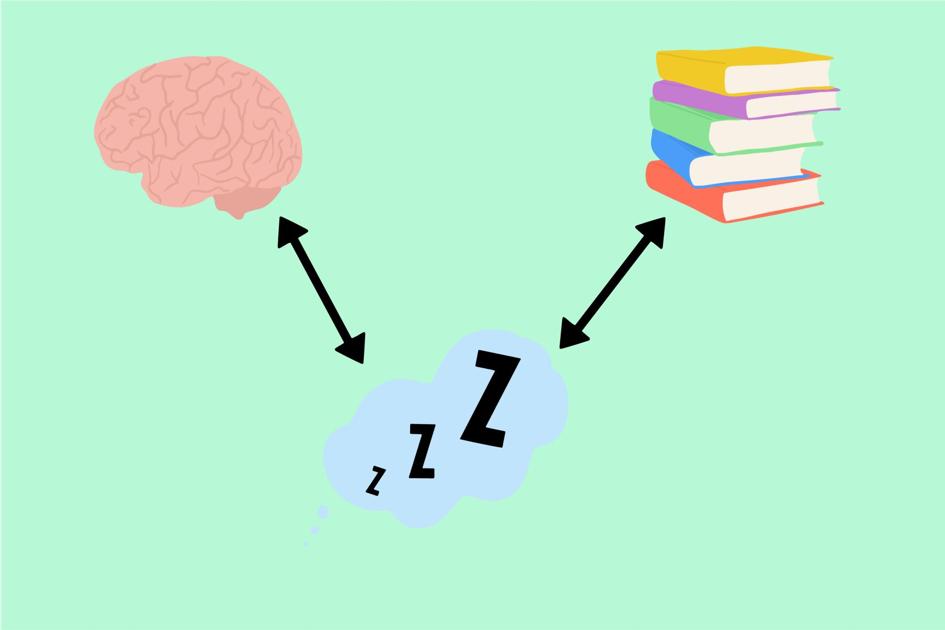
Between classes, internships, work and socializing, a student’s sleep often slips down the priority list. However, the key to getting straight A’s could actually be getting many more Z’s.
As daylight saving time returns for the year, it is more vital than ever that students adjust their sleep schedules to each get the sleep that they need and deserve, especially during this unusually strenuous and taxing semester.
According to the University of Georgia Health Center, students get an average of 6-6.9 hours of sleep per night, and most college students are sleep deprived much more than is healthy during their years at school.
UGA administers a survey to students every two years to gauge students' relationship with sleep. The most recent of these surveys indicated that one out of every four UGA students have experienced how a lack of sleep can impact their academic performance.
“The very qualities you need to maximize in order to do well on tests, such as recall, concentration and alertness, are decreased when you are sleep deprived,” the UGA University Health Center website said.
Freshman communications major Carter Ricker has already started to see the impact his sleep schedule has on his academic performance. Ricker even said he has sustained himself for multiple days on nothing but caffeine from coffee and energy shots in an effort to study effectively for a difficult test.
Many students can relate to this paradoxical situation of needing to stay up to get homework done and study as much as possible but also needing sleep to be productive in your work and studying. It is sometimes very hard to prioritize something that seems as expendable as sleep.
Sleep is truly not expendable at all, and has a huge impact on the mental and physical wellbeing of an individual. According to the UHC website, lack of sleep is associated with increased stress, lower GPA and even weight gain.
Circadian rhythms are natural, internal processes that regulate the sleeping and waking cycle. Circadian rhythms can be impacted by blue light from computer screens, as well as by mental health and stress, according to the National Institute of General Medical Sciences. Ricker joked that his circadian rhythm has taken on the tempo of funky, asynchronous jazz this academic semester.
For freshman biology major Alexis Gonzalez, taking control of her sleep schedule means taking control of her mental health. After losing grip on her sleep schedule, Gonzalez noticed her temper becoming shorter and her mental health declining.
Gonzalez said that the first course of action taken by her psychiatrist to help her was to prescribe medications to help her regulate her sleep schedule.
“When I don’t get enough sleep I have such a short temper, and I’m just more irritable. And even if I sleep for a long time, if I’m not on a schedule it impacts the quality of the sleep I get and still has an impact on my mood,” Gonzalez said.
Many students had consistent sleep schedules which were then thrown off by the COVID-19 pandemic. Ricker’s sleep schedule prior to the pandemic “wasn’t perfect, but at least it was consistent.” He regularly got six to eight hours of sleep per night.
After the pandemic began and school transitioned to online, Ricker’s academics took a huge toll on his sleep schedule. Delving into the previously unknown areas of Zoom classes and entirely online learning, students and educators alike had an incredibly hard time transitioning.
“A few of my teachers were understanding of how difficult it was, but some just did not care. They seemed to think ‘you’re home, so I can assign you all of this work even though you’ve never done even close to this much before,’ and that really impacted the amount of sleep I got,” Ricker reflected.
Gonzalez had a similar experience, where in the two weeks of uncertainty between the start of the pandemic and the transition to online learning, her sleep schedule became extremely inconsistent, and never really recovered in the past twelve months.
As Gonzalez works on improving her mental health through her sleep, she has found that putting her phone away at night and shifting to viewing all-nighters as less productive than productive has improved her relationship with sleep.
“When it comes down to it, no assignment or grade is worth sacrificing your sleep or your mental health, and don’t hesitate to seek help from a professional if you need it. Sleep is so important,” Gonzalez said.
"impact" - Google News
March 15, 2021 at 07:00PM
https://ift.tt/3bLpRIc
UGA students discuss impact of sleep on academics, mental health - Red and Black
"impact" - Google News
https://ift.tt/2RIFll8
Shoes Man Tutorial
Pos News Update
Meme Update
Korean Entertainment News
Japan News Update
Bagikan Berita Ini














0 Response to "UGA students discuss impact of sleep on academics, mental health - Red and Black"
Post a Comment